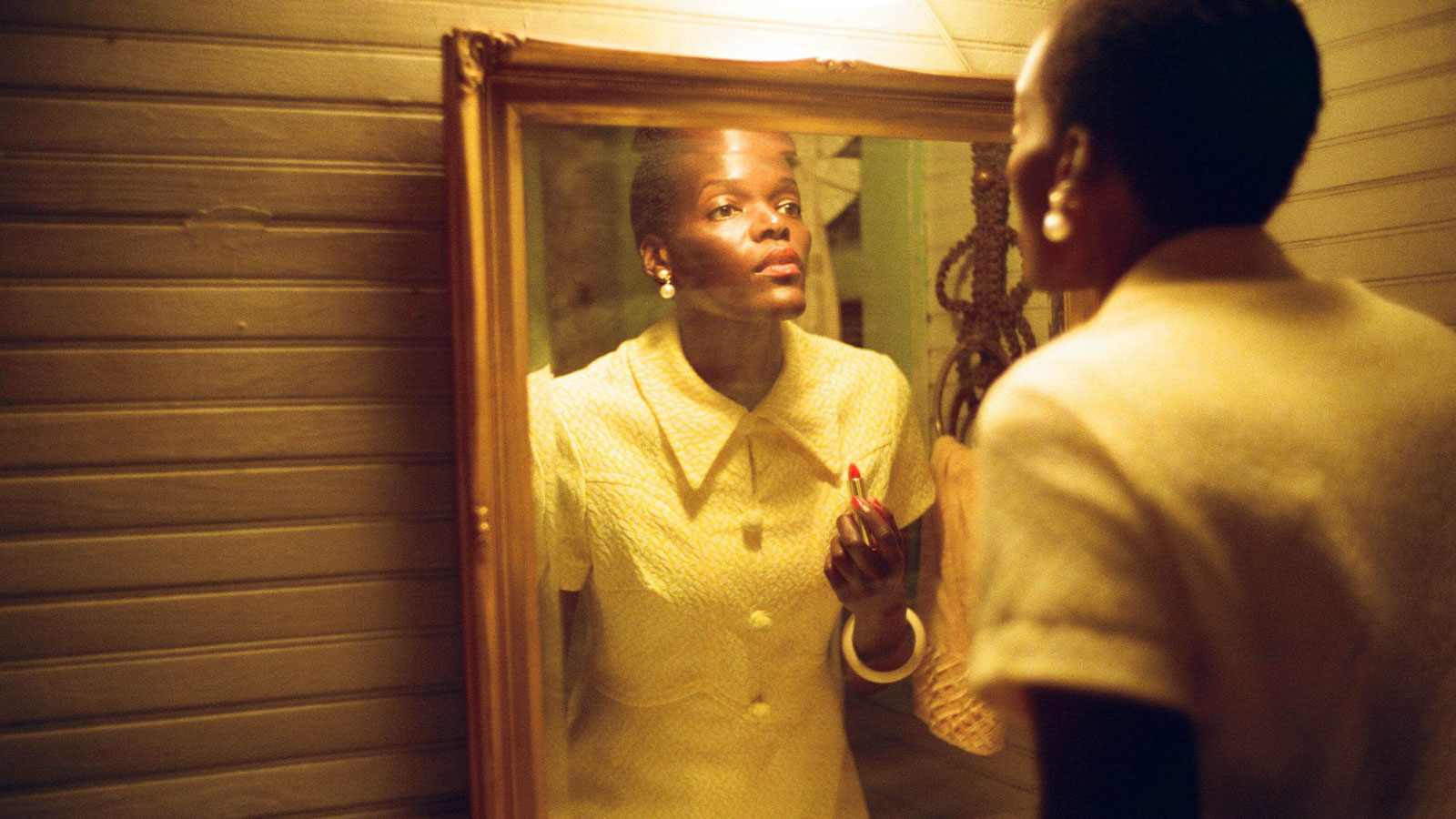Lingering Embraces: Raven Jackson on All Dirt Roads Taste of Salt

Critics Campus 2024 participant Grace Boschetti speaks to Raven Jackson about her debut feature, an immersive and sensitive work that traces moments in a woman’s life across decades.
Sensuous and divine, Raven Jackson’s feature directorial debut, All Dirt Roads Taste of Salt, moves like water and seeks to wash over you. Memories of youth are soundtracked by the hum of insects, thunderous rainfall, the rattling of bikes on train tracks and the crunch of dry grass underfoot. Freshly caught fish gape and glisten; handfuls of mud swirl, galaxy-like, in a river. Gradually, non-linearly, the film presents a series of formative experiences in the life of Mack (portrayed at different ages by Mylee Shannon, Kaylee Nicole Johnson, Zainab Jah and most often by Charleen McClure) to form a loving, patchwork portrait.
Jackson – who, like her protagonist, grew up in the American South – has a background in poetry and photography. In approaching the development of her first feature, she knew she wanted to “lyrically explore life”. “I was coming off a short film called Nettles [2018] … [which] explores small but significant moments in lives of different girls and women,” Jackson begins. “I was thinking a lot about moments you remember years later, even if you don’t know why.”
There’s a remarkable sensitivity to the way All Dirt Roads Taste of Salt illustrates that an ordinary interaction, like an offhand, cutting remark from a parent, can sear into the mind just as deeply as a major life event. Jackson clarifies that it was her intention to place “the seemingly mundane and the profound on the same plane in the film”. Equally, she details her consideration of how a memory that stings deeply might also contain joy: “There are many colours we experience in life, and sometimes there are multiple colours in one moment.”
For Jackson, figuring out how long to linger in each individual moment was “a discovery”. Touching on slow cinema, she mentions the influence of Andrei Tarkovsky, as well as Carlos Reygadas’s Silent Light (2007). She explains that All Dirt Roads Taste of Salt’s deliberateness is meant “to honour a certain pace” of living in the South.
Jackson particularly reflects on constructing the scene in which Mack reunites with her former lover Wood (Reginald Helms Jr) at the grocery store where she works. It’s a stunning, protracted sequence; everything the two characters cannot say is expressed in their extended embrace. The shape of their hands, clasped together, is almost like a human heart. “I was just present for that moment,” Jackson says. “These characters haven’t seen each other for a long time. They’re going to hug for a while.”

All Dirt Roads Taste of Salt
All Dirt Roads Taste of Salt’s narrative is not moored to any one point in time; rather, there is a sense of each episode existing in its own eternal present. It’s poignant and painful that a character can be vibrantly alive in a scene that follows their funeral, or a fledgling romance can be savoured even after we’ve observed it as an old wound.
Throughout our conversation, Jackson makes intermittent references to “slant rhymes” – that is, rhymes that are near or imperfect. In collaboration with cinematographer Jomo Fray, she sought to draw parallels between various images, creating a dialogue between scenes that bridge the decades over which the story spans. “Some happen naturally, but I [was] definitely thinking about it,” Jackson shares, noting how several emotionally charged meetings between Mack and Wood serve to reveal what time has changed: “For me, it’s another way of visually telling this story … embraces were certainly a language in the script”.
Years before commencing work on All Dirt Roads Taste of Salt, Jackson wrote a poem using that same evocative title. She had taken inspiration from a conversation with her grandmother around the practice of consuming clay dirt, a tradition Mack and her family members participate in on several occasions during the film. “I just knew when it came to my feature that that was the title,” Jackson begins. “But it took me a while to actually add in the aspect of clay dirt eating.”
The director notes that this detail felt like the “thread that really ties it all together”. It reflects Jackson’s own lineage – her mother “grew up eating clay dirt, passed down to her from her mother” – as well as connecting to the film’s recurring symbol of water: “It’s often after rain that the smell is so rich that those who eat clay dirt are drawn to go and get some.”
“It doesn’t end or begin; it just changes form,” muses a middle-aged Mack, relishing the sensation of rainfall. In All Dirt Roads Taste of Salt, a family is, like water, in a state of constant flux – but what bonds them is unbreakable.